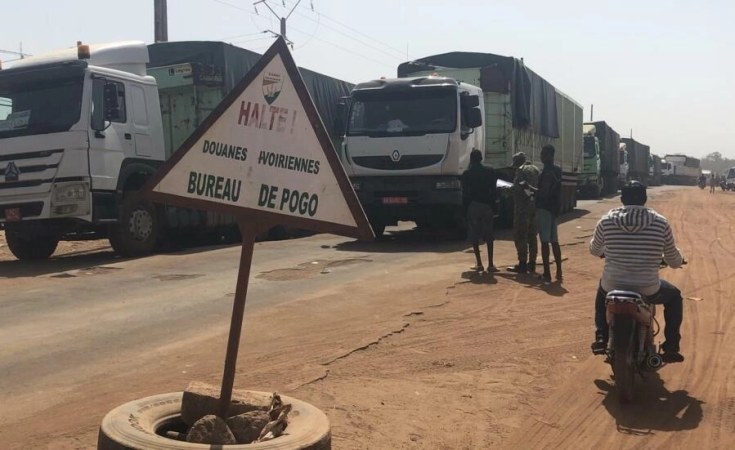Cote d'Ivoire has lifted its Covid-imposed land border closure, officially re-opening its roads to neighboring countries after nearly three years.
The country shut down all borders on 22 March 2020 at the start of the Covid pandemic.
Sea and air borders were reopened after a few months, as the country depends on exports of cocoa and coffee, but land borders with Burkina Faso, Ghana, Guinea, Liberia and Mali remained closed.
Millions of people from these countries living in Cote d'Ivoire were forced to use back roads in order to get home.
"Today we have the clandestine crossing routes under control," government spokesman Amadou Coulibaly said after a cabinet meeting Wednesday in which it was agreed the borders would reopen at midnight.
"We urge all travellers to use official crossing points from now on."
The government recorded a recent arrival of 8,700 refugees fleeing violence and insecurity in Burkina Faso, crossing the border, and would like to be able to identify and process them properly.
The reopening means the transport sector must get back to work, rehiring drivers and staff.
"We must rebuild the workforce in lorry depots, because drivers had found themselves out of work," Daouda Bamba, the secretary general of the Ucrao, the Union of West African drivers, told RFI.
Some 300 companies will slowly get back on the road, re-employing 24,000 people.
Cote d'Ivoire had relatively few deaths related to Covid, with official figures putting the death toll at 800, out of a population of 27 million.
Last month, President Alassane Ouattara praised the country's management of the Covid pandemic, and announced a progressive easing of restrictive measures put in place during the health state of emergency.
(with AFP)


